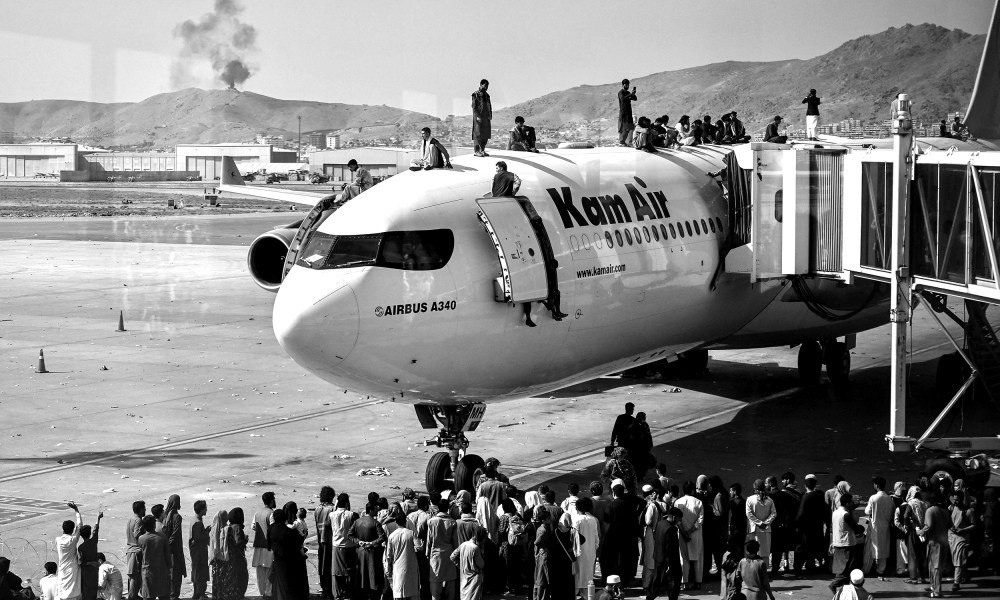President Joe Biden addressed the nation about the state of the U.S. withdrawal from Afghanistan on Monday — mainly, it seemed, to say he regretted nothing. “Our mission in Afghanistan was never supposed to have been nation-building,” he said. He blamed the Taliban’s rapid advances across the country on Afghan security forces’ failing “to mount any real resistance to the Taliban.”
These images won’t exactly inflict a lethal blow on the Biden presidency, but they will haunt him.
But the president had virtually nothing to say about what’s on everyone’s minds: how poorly prepared the U.S. was for the Taliban’s blitz and the vulnerable position he has left so many Afghans in as a result.
In the past several days, the Taliban’s astonishing takeover of the country has been so swift that Washington effectively had to beg the Taliban to let it evacuate embassy personnel safely, and U.S. military helicopters were called in to airlift diplomats to the airport in Kabul. Over the weekend, people hoping to escape the country swarmed runways, and some clung to departing U.S. military aircraft during takeoff — sometimes for so long that they fell to their deaths. Images of the gut-wrenching scramble that have gone viral have been likened to the U.S.’s withdrawal from the Vietnam War.

These images won’t exactly inflict a lethal blow on the Biden presidency, but they will haunt him. It’s clear that the poorly executed withdrawal will hurt U.S. credibility internationally, and it has already begun to attract harsh criticism from humanitarians concerned about how little was done to protect vulnerable Afghans. While many experts say an eventual Taliban takeover was inevitable given the failure of the U.S.’s nation-building project, the Biden administration’s poor preparation for withdrawal will be a stain on the president’s legacy in a policy area in which he was supposed to be most seasoned.
Leading up to these events, withdrawal was a deeply popular policy, with surveys consistently finding that an overwhelming majority of Americans supported getting out of Afghanistan. The U.S.-led war on terrorism has taken a back seat to the rise of China, both as a strategic priority for the government and in national conversations about America’s role in the world. And Donald Trump’s presidency persuaded many Republicans that the U.S. should step away from sustained interventions and forever wars, meaning Biden won’t be as vulnerable to partisan broadsides.
The Biden administration’s poor preparation for withdrawal will be a stain on the president’s legacy in a policy area in which he was supposed to be most seasoned.
But it’s also quite apparent that the administration took little care to ensure that things were in place to keep the country running and to protect Afghans, especially those who were likely to be Taliban targets because of their relationships with American security operations. As The New York Times reports:












